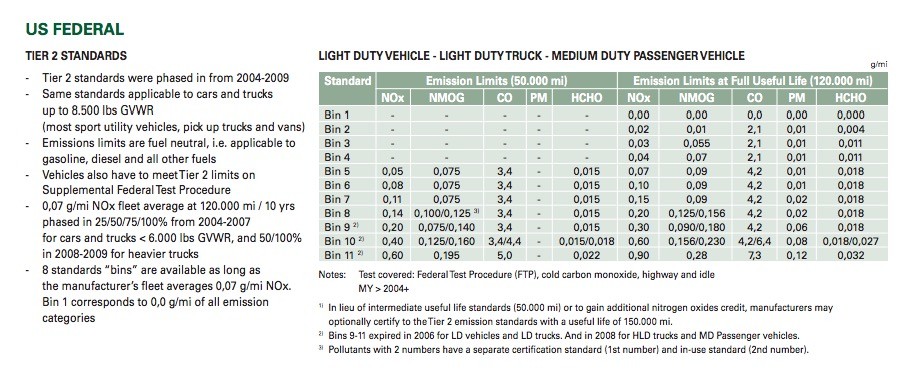German Automakers In China: A Focus On The Challenges Faced By BMW And Porsche

Table of Contents
Intense Competition in the Chinese Luxury Car Market
The Chinese luxury car segment is fiercely competitive, with established players like Audi and Mercedes-Benz already holding significant market share. BMW and Porsche face pressure not only from these German rivals but also from increasingly sophisticated and competitive local brands. This creates a complex landscape where maintaining brand prestige and profitability requires a multifaceted strategy.
-
Growing presence of Chinese luxury brands: Domestic brands like Hongqi and Lynk & Co are rapidly gaining traction, leveraging advanced technology and appealing designs to attract affluent Chinese consumers. This increased competition intensifies the pressure on established luxury brands.
-
Price wars and aggressive marketing strategies: To secure market share, competitors engage in price wars and aggressive marketing campaigns, impacting the profitability of all players, including BMW and Porsche. This requires careful pricing strategies and a robust marketing approach to maintain brand value.
-
Maintaining brand loyalty and exclusivity: In a rapidly evolving market, preserving brand prestige and exclusivity is paramount. BMW and Porsche must maintain their image as symbols of quality, luxury, and performance while adapting to local preferences.
-
Competitive pricing and financing options: Offering competitive financing plans and pricing structures tailored to the Chinese market is essential to remain competitive. This necessitates understanding local consumer financial behaviors and preferences.
Navigating China's Complex Regulatory Environment
China's regulatory landscape for automobiles is intricate and constantly evolving. Meeting stringent emission and safety standards, alongside navigating import tariffs and localization requirements, poses a considerable challenge for German automakers. Staying compliant requires significant investment and ongoing adaptation.
-
Stricter emission regulations and the push for electric vehicles (EVs): China's commitment to reducing emissions is driving stringent regulations favoring electric vehicles. This necessitates significant investment in EV technology and infrastructure.
-
Complex homologation processes: The process of getting new vehicle models approved for sale in China is complex and time-consuming, requiring substantial resources and expertise.
-
Increasing pressure to localize production and sourcing: The Chinese government incentivizes local production and sourcing of parts, requiring German automakers to establish local manufacturing facilities and supply chains.
-
Ever-changing government policies: Navigating the constantly evolving regulatory environment necessitates close monitoring of government policies and proactive adaptation to ensure compliance.
The Importance of Localization and Cultural Understanding
Successfully entering and thriving in the Chinese market necessitates a deep understanding of local consumer preferences and cultural nuances. Localization strategies extend beyond simple translation to encompass product adaptation, marketing campaigns, and dealer network development. Ignoring these factors can lead to significant market failures.
-
Tailoring vehicle features: Adapting vehicle features to meet specific Chinese consumer needs—such as enhanced infotainment systems or specific comfort features—is crucial for success.
-
Effective marketing campaigns: Marketing campaigns must resonate with local culture and values, requiring a deep understanding of Chinese consumer behavior and media consumption patterns. Digital marketing and social media engagement are particularly crucial.
-
Strong dealer network: Establishing a strong and reliable dealer network is vital for providing after-sales service and maintaining customer satisfaction.
-
Understanding digital marketing: The dominance of digital channels and social media in China requires sophisticated digital marketing strategies.
The Rise of Electric Vehicles (EVs) in China
The Chinese government's strong push for electric vehicle adoption presents both an opportunity and a challenge. German automakers must adapt rapidly to compete in this burgeoning sector. The EV market in China is exceptionally competitive, demanding innovation and significant investment.
-
Intense competition from Chinese EV startups: Numerous Chinese EV startups are aggressively competing for market share, forcing established brands to innovate and offer compelling EV options.
-
Investment in battery technology and charging infrastructure: Significant investments are needed in battery technology and the development of charging infrastructure to support the growing EV market.
-
Government subsidies and incentives: The Chinese government offers subsidies and incentives for EV adoption, creating a favorable environment for EV manufacturers.
-
Developing a compelling range of EV models: Offering a diverse range of EVs that cater to various price points and consumer preferences is essential for success in this competitive market.
Conclusion
The Chinese automotive market presents substantial opportunities for German automakers like BMW and Porsche, but success hinges on overcoming significant challenges. Intense competition, a complex regulatory environment, and the crucial need for localization require strategic planning and a deep understanding of the Chinese market. The rapid growth of the electric vehicle sector further adds to the pressure to innovate and adapt.
Understanding the unique challenges faced by German automakers in China is critical for anyone involved in the global automotive industry. Continue learning about the complexities of navigating the Chinese market for German automakers and stay informed on the latest developments in this dynamic sector. Further research into specific strategies employed by BMW and Porsche in China can provide valuable insights for future market entry strategies.

Featured Posts
-
 Yankees Smash Team Record With 9 Home Runs Judges 3 Lead The Way
Apr 23, 2025
Yankees Smash Team Record With 9 Home Runs Judges 3 Lead The Way
Apr 23, 2025 -
 Violenza Contro Ristoranti Palestinesi 200 Manifestanti Protestano Per Le Vetrine Spaccate
Apr 23, 2025
Violenza Contro Ristoranti Palestinesi 200 Manifestanti Protestano Per Le Vetrine Spaccate
Apr 23, 2025 -
 Trump Meets With Walmart And Target Executives On Tariffs
Apr 23, 2025
Trump Meets With Walmart And Target Executives On Tariffs
Apr 23, 2025 -
 Depenses Militaires Usa Russie Analyse Des Valeurs En Hausse Selon John Plassard
Apr 23, 2025
Depenses Militaires Usa Russie Analyse Des Valeurs En Hausse Selon John Plassard
Apr 23, 2025 -
 Analyse Du Portefeuille Bfm Decisions D Arbitrage Du 17 02
Apr 23, 2025
Analyse Du Portefeuille Bfm Decisions D Arbitrage Du 17 02
Apr 23, 2025
